UNFPA’s Work with the Elderly
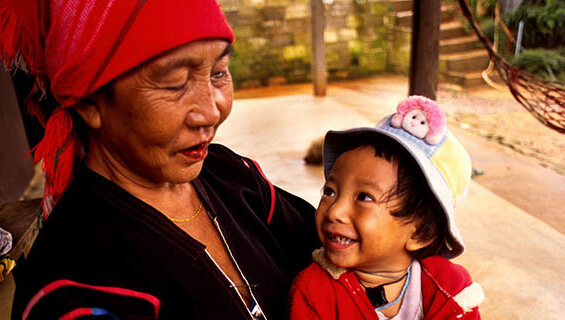
UNFPA Asiapacific
COVID-19 has left many people vulnerable to infection and death, with the elderly among the most affected. Horrific stories of grandparents dying alone or hospitals turning away patients have been reported around the world. Today, 1 in 8 people are over 65 years old -more than ever before- and that number is only increasing. The time to determine how to best care for an older population is now.
UNFPA has been responding to the COVID-19 outbreak by providing healthcare workers with personal protective equipment and supplying the hardest hit areas with essential items that could become scarce due to disruptions in global supply chains, like menstrual hygiene products and adult diapers. But, even before the pandemic, UNFPA’s work with the elderly has been extensive. Aging populations face unique challenges to their health and well-being. Issues like poverty, neglect, abuse, and the right to be independent often go unaddressed.
Here are some of the ways that UNFPA is caring for today’s -and tomorrow’s- elderly:

UNFPA Georgia/Salome Tsopurashvili
Supporting active aging
Active aging is the idea that older adults are healthy enough to be involved with their friends, families, and communities, and that this involvement leads to better social, physical, and mental health. UNFPA supports active aging by providing older adults with access to community centers where classes are taught on computer literacy, foreign languages, and skills for living by oneself into old age. The classes help older adults to be independent and connected to their social circles.
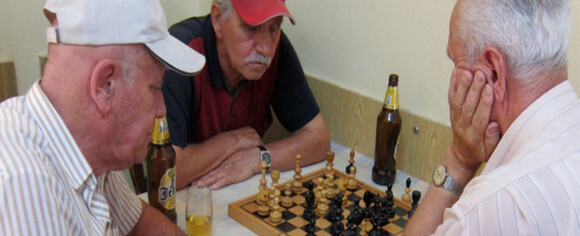
UNFPA/Rob McBride
Changing social and family structures to support older populations
9 of 10 of the fastest shrinking countries are in Eastern Europe. This area has low fertility, high levels of out-migration, and an older population. Traditionally, families have been expected to care for their grandparents, but changing family structures with fewer and busier young adults have disrupted this system. Financial pressures have also made it difficult.
UNFPA promotes legal protections for the elderly in Eastern Europe by supporting policies that shift this care onto the government and ensure that everyone has access to healthcare, and opportunities for employment, and the availability of transportation. In Serbia, UNFPA supports community centers for older adults.
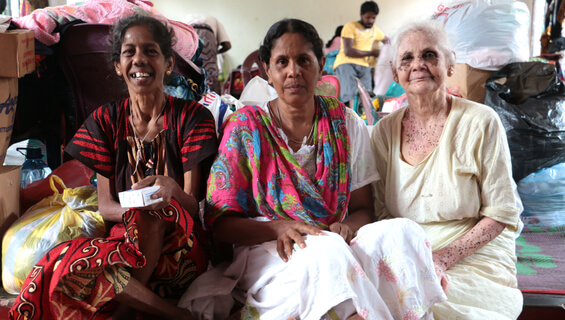
© UNFPA India
Caring for the vulnerable elderly
Many older adults are afraid of neglect or isolation, but for widows, this fear is especially present. On average, women live longer than their husbands, are less likely to have been able to save enough money for retirement, and are more vulnerable to discrimination because they are both older and women. This leaves older women particularly at risk for poverty and elder abuse. In India, UNFPA’s work with the elderly includes advocating for equal access and provision of retirement funds and social services, whether an older person is a man or a woman.
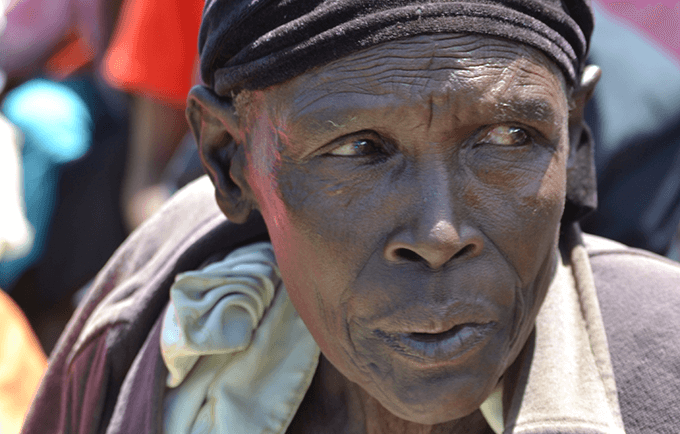
© UNFPA Uganda/Evelyn Matsamura Kiapi
Empowering the elderly as advocates
Older adults are sometimes characterized as being stuck in the past or traditional. However, some of the elderly, like Uganda’s Turutea, are active as advocates of change.
Turutea previously performed female genital mutilation (FGM) in her community, but after learning about the harms of FGM through UNFPA, she began sharing that information with others in her community. Now, Turutea will not cut any girl and has changed the minds of many others on this harmful practice.
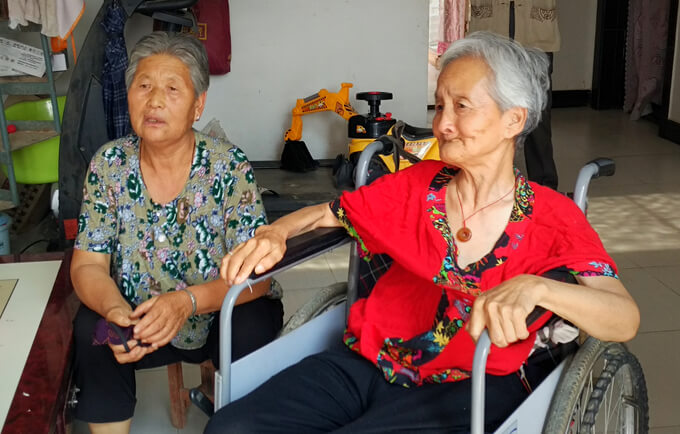
UNFPA China/Zhang Xiaohua
Providing for the elderly’s mental health
In China, younger seniors care for older seniors to provide services like haircuts, laundry, food service, and healthcare. As Liu, the director of the center says, “We no longer feel that we are the burden on society. In fact, we are helping out.” Creating a space for community and giving older adults a purpose has been beneficial for their mental health. Now, Liu’s center serves nearly 60,000 seniors.
Too often, older adults are seen as burdens for their families and for society. They are seen as frail, slow, and old-fashioned. But, today’s elderly are more active and involved than ever before. UNFPA’s work with the elderly ensures that aging populations are able to live with the health and dignity that is their right, whether it is in times of health or pandemic.
-Dana Kirkegaard